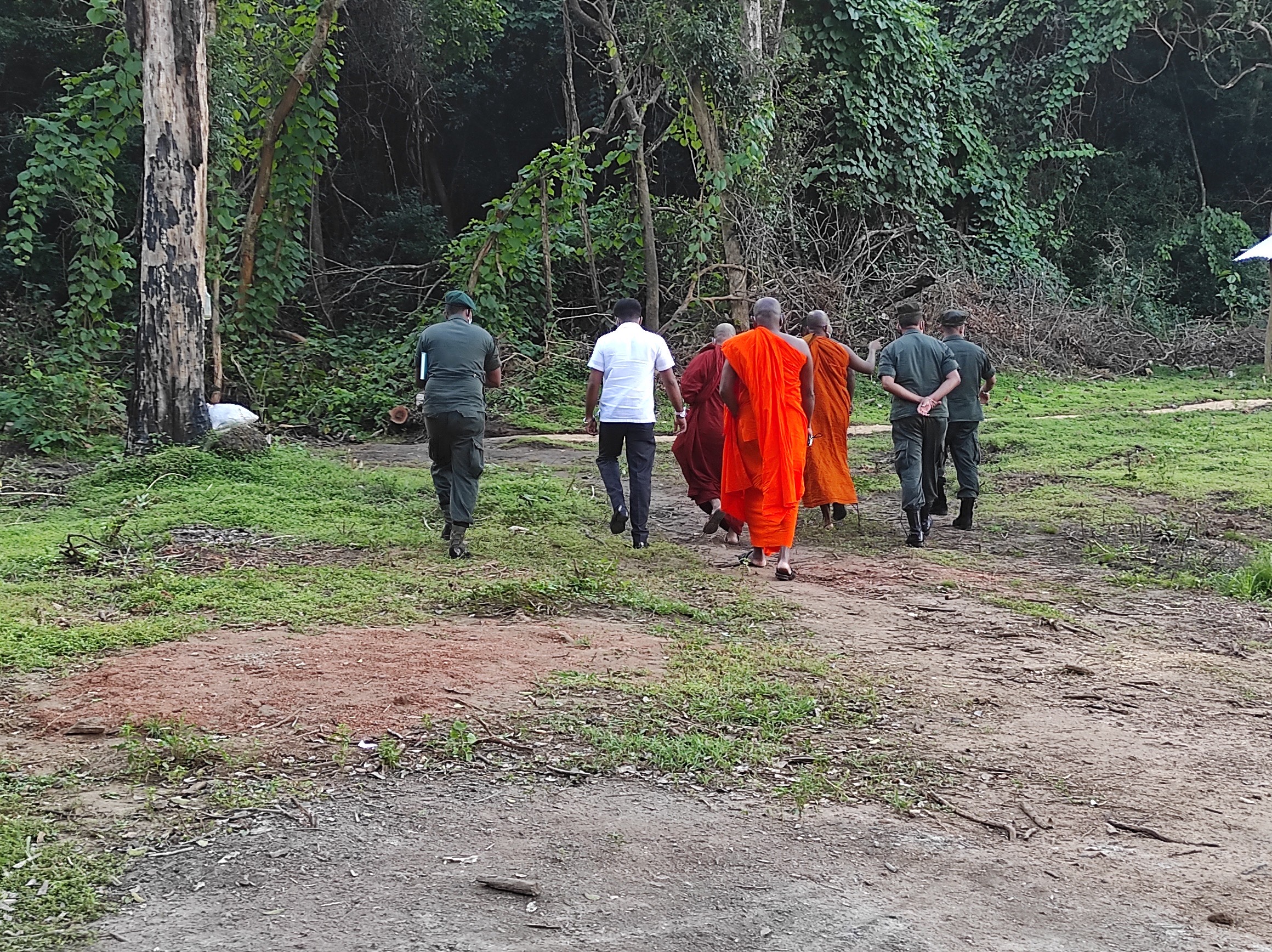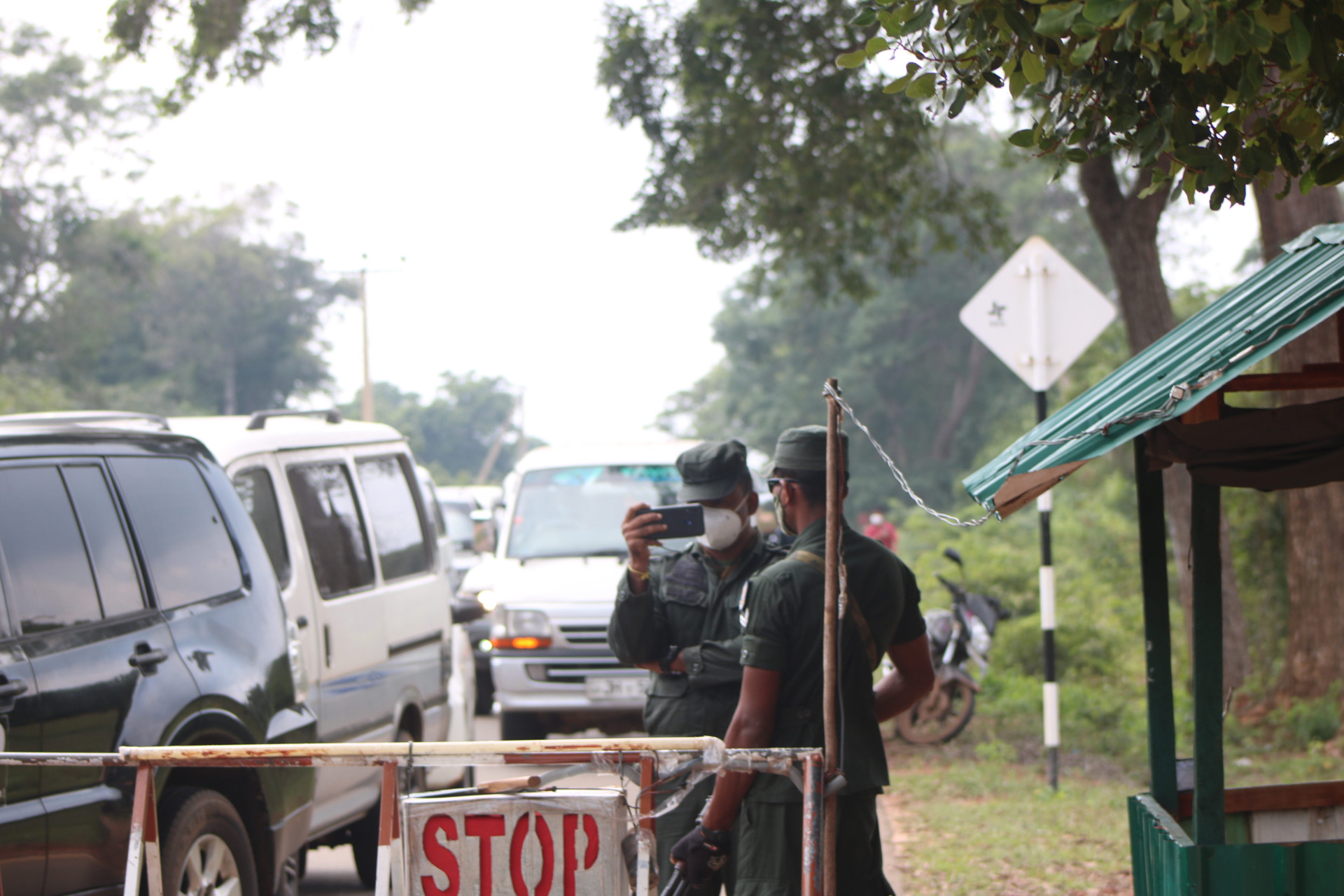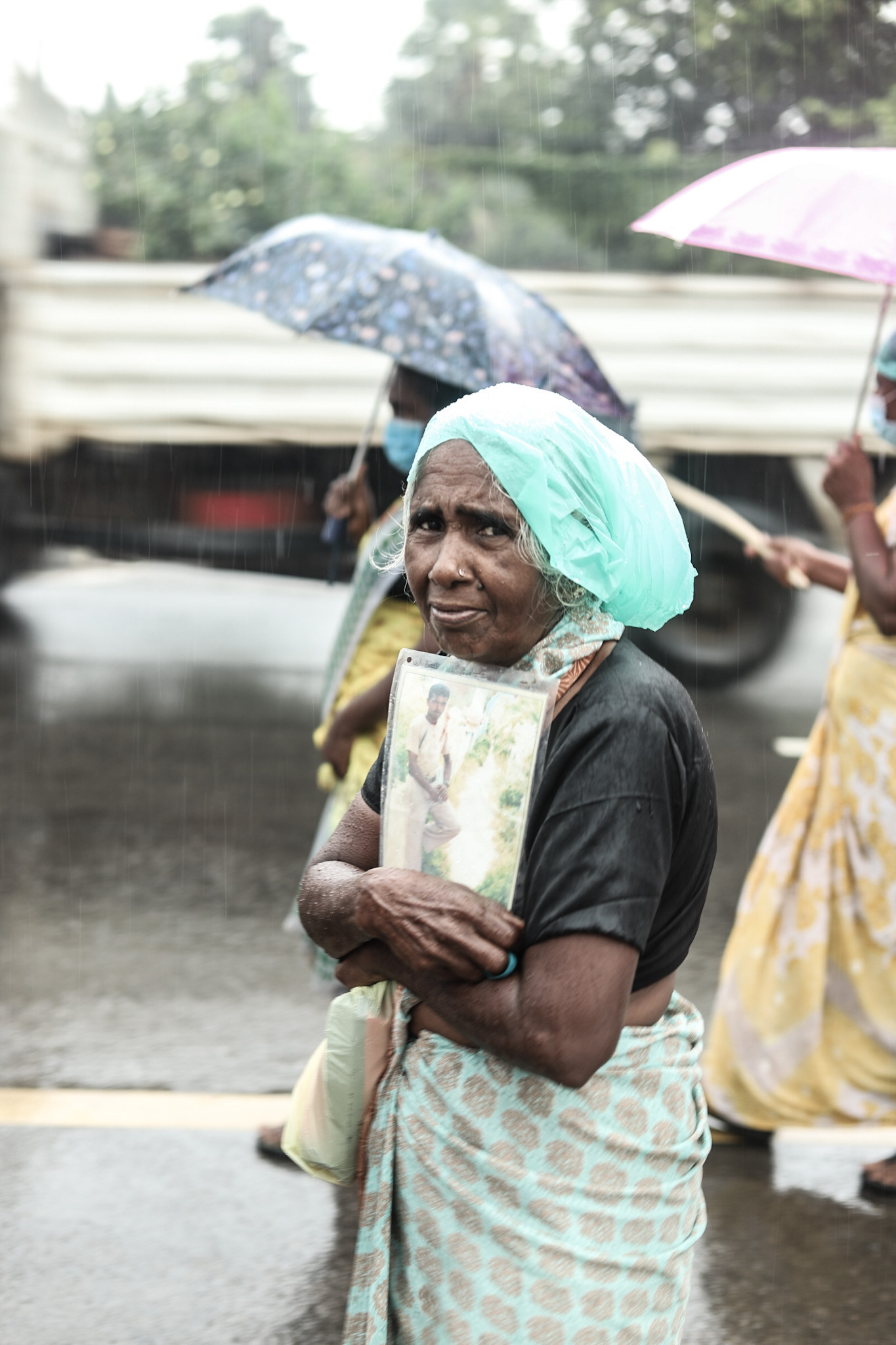
In a new report, the UN High Commissioner expresses concern over the lack of accountability for human rights violations committed by Sri Lanka and renewed her call to member states to use universal jurisdictions and targeted sanctions against alleged perpetrators of human rights abuses.
In her written update, UN High Commissioner, Michelle Bachelet said she “remains concerned about the continued lack of accountability for past human rights violations and recognition of victims’ rights in Sri Lanka, particularly those stemming from the conflict that ended in 2009.”
“There has been a further drift towards militarisation and an emphasis of Sinhala nationalism and Buddhism in State institutions has become more visible, increasing the marginalisation and uncertainty of minority communities, and undermining reconciliation,” the report adds.
Commenting on the recommendations she provided in her 2021 report, the High Commissioner called on member states to:
"Cooperate with victims and their representatives to investigate and prosecute international crimes committed by all parties in Sri Lanka through judicial proceedings in domestic jurisdictions, including under accepted principles of extraterritorial or universal jurisdictions and continue to explore possible targeted sanctions against credibly alleged perpetrators of grave human rights violations and abuses."
Bachelet also urged member states to:
"Review asylum measures with respect to Sri Lankan nationals to protect those facing reprisals and refrain from any refoulement in cases that present real risk of torture or other serious human rights violations."
Bachelet asserts that despite Sri Lanka’s engagement with the Office of the High Commissioner for Human Rights, “a comprehensive vision for a genuine reconciliation and accountability process is urgently needed, as well as deeper institutional and security sector reforms that will end impunity and prevent the recurrence of violations of the past.”
Militarisation and land rights
The report highlights that the last two years have seen an increase in the militarisation of civilian functions in Sri Lanka. Bachelet warns that “the concentration of civilian positions in the hands of military officials, affects the democratic governance and the long-term character of the state.”
She also expressed concerns over the “disproportionately high number of military checkpoints” in the North which has led to an increase in discriminatory treatment especially against women.

The High Commissioner outlines that "a renewed trend of land disputes related to Buddhist heritage conservation or forestry protection, has created new tensions with minority communities, particularly in the Eastern Province given the diverse population and heritage of the region." The report also affirms the role of the Sri Lankan police, military and Buddhist clergies "to identify archaeological monuments and facilitate the repair or construction of Buddhist sites."
"The Government has also imposed restrictions on land use in these areas on the basis of environmental and forest preservation. Minority communities fear the program is being used to change the demographic landscape of the region. This could impact livelihoods and increase potential for new conflicts."
Prevention of Terrorism Act
Last month, Sri Lanka announced a series of proposed ‘reforms’ to the widely criticised Prevention of Terrorism Act (PTA). Bachelet notes that the Government of Sri Lankan claims that these reforms are the “initial steps towards promulgation of more comprehensive legislation.”
“However, other parts of the proposed amendments do not comply fully with Sri Lanka’s international human rights obligations and leave intact some of the most problematic provisions of the PTA,” the report states.
She urges Sri Lanka to “give full consideration to the analysis and recommendations made over many years by UN human rights mechanisms on the PTA” and called on the authorities to apply a moratorium on its use until it is replaced by legislation that fully complies with international standards.
Intimidation tactics
The report also expresses concern over the surveillance and harassment of victim survivors, activists and civil society organisations, particularly in the North-East.
She also highlights that the OHCHR “received several reports that victim groups continue to face harassment and intimidation from the authorities, including multiple visits from intelligence and police officers inquiring about plans for protests or commemoration or their past links with the Liberation Tigers of Tamil Eelam (LTTE).”

“In addition, rehabilitated LTTE members and their families or anyone considered to have had any link to LTTE during the conflict are targets of constant surveillance,” the report added.
After President Gotabaya Rajapaksa took office, Sri Lanka decided to withdraw its co-sponsorship of UN resolutions, claiming that they would achieve justice and accountability through a domestic mechanism. However, Bachelet emphasises that “two years on, the Government has yet to come forward with any credible new roadmap on transitional justice towards accountability and reconciliation.”
Transitional justice
The human rights chief also drew attention to the plight of the Tamil families of the disappeared who have been demanding to know the whereabouts of their loved ones.

In November 2021, Sri Lanka reported that the Office of Missing Persons (OMP) had established four panels of inquiry to conduct investigations and to enable the OMP to issue of Certificate of Absence or Certificate of Death to the families.
However, the “OHCHR is concerned that the verification seems to be aimed at reducing the case load and closing files rather than a comprehensive approach to establish the truth and ensure justice and redress to families.”
She expressed that the families “have a right to truth, justice, reparation and guarantees of non-recurrence” and urged Sri Lanka to “acknowledge their sufferings, urgently determine the fate or whereabouts of victims, provide reparations, and bring perpetrators to justice.
Recommendations
In her report, Bachelet urges Sri Lanka to “go much further and deeper with the legal, institutional and security sector reforms” that are necessary to comply with the country’s international human rights obligations and to prevent the recurrence of grave violations.
Bachelet highlights the lack of progress made by successive Sri Lankan governments to ensure justice for victim survivors. If Sri Lanka continues to fail to provide tangible results, Bachelet calls on the Human Rights Council to “continue to pursue international strategies for accountability.”
“Sri Lanka will only achieve sustainable development and peace and lasting reconciliation if it ensures civic space, independent and inclusive institutions, and puts an end to systemic impunity,” she added.
Read the full report here.
No comments:
Post a Comment